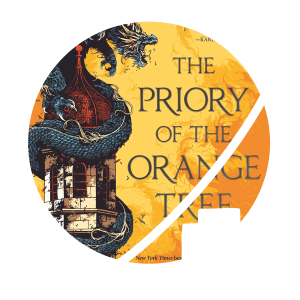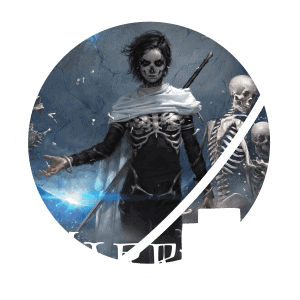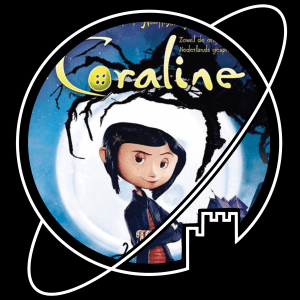- Novella written by Nghi Vo
- Published 24 March 2020
- Part 1 in the Singing Hills Cycle


Listened to the audiobook with Cindy Kay, who has a nice, almost whispering quality to her reading, which adds an extra layer of mysteriousness to the story. Well read!
Empress of Salt and Fortune is a story with a frame narrative, and for some reason I find the frame narrative to be one of the most exciting narratives devices out there – it’s probably the thing I like most (the one thing I like?) about the Kingkiller Chronicles for example.
In Empress of Salt and Fortune, the frame narrative and the main story are satisfyingly intertwined, and even though the main character in both sides of the tale are different, I felt I got a good sense of both subjects.
Considering that Empress of Salt and Fortune is only a short novella, I think that is an impressive feat.
I think Vo in general does a great job of respecting the limits of the medium. A fantasy novella is very different from a fantasy novel, especially because fantasy is a genre that produces stories with a learning curve: it takes the reader some time to adjust to the ‘rules’ of the new world they’re delving into.
I think Vo made all the right choices: her worldbuilding is focused on neat little details and implications and borrows liberally from well-understood tropes about a historical reality.
Yes, this is medieval China, but what’s this about mammoths?! Vo resisted the need to explain (at least in this Novella), and leaves the specifics up to the reader’s imagination.
Similarly, Vo generally focusses on scenes over the narrative. I’ve criticised this in movies, because movies sometimes have trouble getting the plot across and building up their characters. But in books I think focusing on scenes is something that writers should feel more at liberty to do: strong character moments are more important to some stories than narrating the exact sequence of events that leads from A to B.
In Empress of Salt and Fortune this leads to numerous gaps and time jumps in the main story and that is great: the novella feels lean and light and quick, and yet the story is told without core elements missing. The story even has some nice little twists towards the end.
In conclusion, Empress of Salt and Fortune is a deceptively simple but very well constructed novella with a story that might not be ground breaking but is satisfying nevertheless. The strong female and non-binary characters are the cherry on top. I’m hooked – I loaded When the Tiger Came Down the Mountain into my audiobook player straight away!















